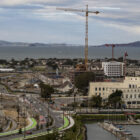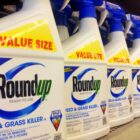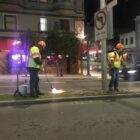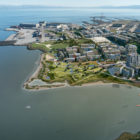Climate Change
Promising to Prevent Floods at Treasure Island, Builders Downplay Risk of Sea Rise
Sea level rise is forcing cities around San Francisco Bay to weigh demand for new housing against the need to protect communities from flooding. Builders say they can solve this dilemma with cutting-edge civil engineering. But no one knows whether their ambitious efforts will be enough to keep newly built waterfront real estate safe in coming decades.
Meanwhile, developers are busy building — and telling the public that they can mitigate this one effect of climate change, despite mounting evidence that it could be a bigger problem than previously believed.




